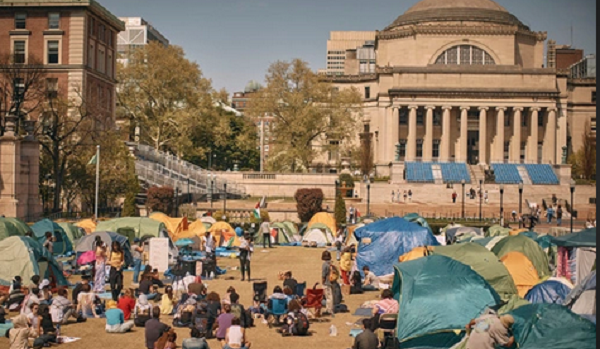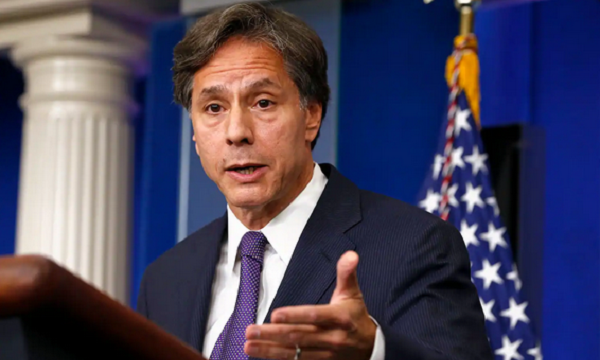Mayors concerned feds won’t meet up with the promised long-term infrastructure deal in 2024 budget
Canada’s mayors are expressing concern that Prime Minister Justin Trudeau won’t deliver a promised long-term infrastructure deal in the upcoming 2024 federal budget.
Fifteen big city mayors – including Olivia Chow of Toronto, Jyoti Gondek of Calgary and Scott Gillingham of Winnipeg – were in Ottawa Monday as representatives of the Federation of Canadian Municipalities met with federal ministers to press their case for more funding.
When the Trudeau Liberals came to power in 2015, promises of long-term infrastructure funding were a central plank of the party’s political messaging. But several of those long-term programs are now beginning to expire and Canada’s cities are nervously waiting to find out what happens next.
“We were promised infrastructure funding, and to this day, we have not heard of a plan. So as the budget comes closer and closer, we’re getting more and more concerned that there’s no plan,” FCM President Scott Pearce told reporters at a news conference.
Mr. Trudeau told an FCM gathering in May that the announcement of a new infrastructure deal was just a few months away.
“Our next long-term infrastructure plan will be revealed this fall and, like with public transit, I can share with you today that this funding will have very direct links to housing,” the Prime Minister said at the time. But last fall came and went without an announcement.
Now the leaders of the FCM are expressing concern that the long-term plan won’t be in the budget either.
Ms. Chow said she remained optimistic about more federal funding. But she acknowledged that the mood at Monday’s meetings was grim.
“Mayors are all united talking about fiscal crisis, under siege. Those are exact words,” she said in a phone interview.
Earlier this month, Ms. Chow’s budget increased property taxes by 9.5 per cent this year, the biggest increase in a quarter century of the amalgamated city of Toronto. That was also the biggest increase this year among major Canadian cities, though many boosted property taxes by substantial margins.
Mayors said that these increases were necessary, given that cities have few ways to raise money.
“We need to update that [fiscal] framework. The existing tax system is obviously broken,” Ms. Chow said. “You can’t continue to rely on the poor property taxpayers.”
The date of the federal budget has not yet been announced. It is typically released in late March, and the Trudeau Liberals didn’t make any specific commitments on Monday.
Micaal Ahmed, a spokesperson for Sean Fraser, the Minister of Housing, Infrastructure and Communities, said in a statement that the federal government has spent billions on infrastructure since 2015.
“However, we know that there is more to do, and we must use all the tools available to us to solve the housing crisis,” he said in an e-mail. “We will be sharing more details on this shortly.”
While cities have long cried poverty, inflation and the lingering effects of the COVID-19 pandemic have hammered municipal budgets. Transit ridership is down in many cities and, in some places, years of low-tax policies mean playing catch-up fixing roads and other municipal assets.
Matti Siemiatycki, a professor who is director of the Infrastructure Institute at the University of Toronto, said that cities’ efforts to reach sustainable funding deals with Ottawa have been stymied by questions of jurisdiction and the fiscal health of the federal government. But he said that the situation feels more urgent now, with residents seeing their cities become threadbare.
“They’re experiencing that the infrastructure that they relied on, which is our common wealth, is starting to break down and it’s aging,” he said. “You’re starting to see that, and the municipalities have the least amount of revenue-generating capacity, but they provide the most infrastructure and community services that are most noticeable to people in their day to day lives.”
The Trudeau government and the previous Conservative government under Stephen Harper both provided long-term budgets for federal infrastructure spending as a way of giving municipalities the ability to plan their finances over multiple years.
However, an FCM analysis of about a dozen existing federal funds for infrastructure shows that most of them have closing dates between 2024 and 2028. Some of the more high-profile programs are the Canada Community-Building Fund, which provides about $2.4-billion a year and expires this year, and the Investing in Canada Infrastructure Program, which is worth about $33-billion over 11 years through to 2028.
The FCM notes that some of the programs that technically are in place through to 2028 are already oversubscribed and are no longer taking applications. This includes the $2.75-billion Disaster Mitigation and Adaptation Fund.
With a federal election scheduled for 2025 or sooner, all party leaders frequently list housing as a top political concern in an effort to response to public frustration over the cost and scarcity of affordable places to live.
The federal government expects 485,000 people to arrive this year and another 500,000 in each of the next two years. Coupled with high prices already, this influx has put pressure on cities to build. According to the CMHC, Canada needs an additional 3.5 million homes by 2030 to restore affordability.
Halifax Mayor Mike Savage, who chairs the FCM’s big city mayors caucus, said the housing support must come with more funding for basic infrastructure to support the growing housing markets.
“People buy a house, they expect water to come out of the tap. They want transit. They want a place for their kids to play,” he said.
If Ottawa and the provinces don’t offer more funding, he said municipalities will have to raise taxes. “If we don’t get this, it goes on the property tax. Municipalities across the country are having really difficult property tax discussions, including my own city Halifax.”
This article was reported by The Globe and Mail
















